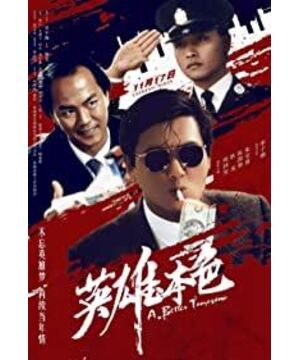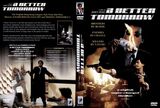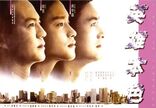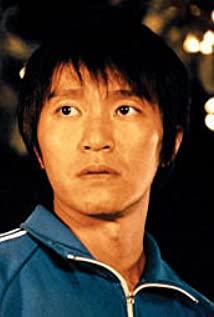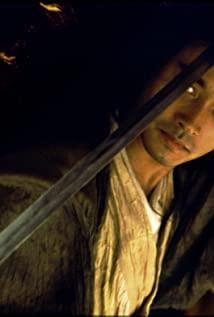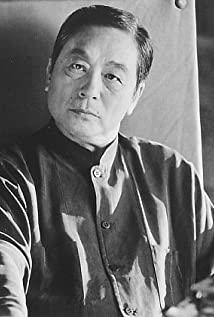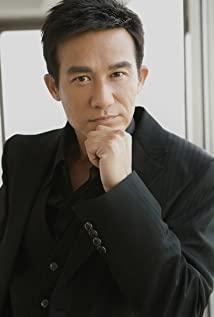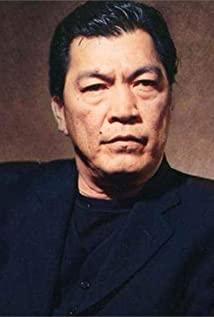Huang Baiming mentioned in his book "The Myth of the New Art City" that in 1986, he used the words "Rising Wind and Clouds". The reason for saying this is all because of the heroic qualities invested by New Art City. Today, twenty years later, there is no need to say anything about the status of the hero. How many times in Hong Kong's dozens of major film selections for decades, it always tops the list. There is no need to say much about its historical significance. Since the beginning of the film, gangster movies have become another eternal theme in Hong Kong movies besides kung fu movies. Until today, the infernal affairs, the underworld, and the exile are all repeating the same scenes from different angles. Spirit, family grudges, male dignity. In 1989, the young man played by Ni Zhen opened and closed his mouth and closed his words to Zhang Che’s birthday celebrations in 1989. He also frequently imitated the hidden guns everywhere, which truly reflected the great influence of the hero's qualities on the society at that time. force. Wu Yusen and Tsui Hark jointly created a strong personal style, emotional language, smooth pictures, hot gun battles, and a heroic image that turned out to have attracted many fans. At that time, not only Hong Kong and the mainland were dumped, but even Korean windbreakers and sunglasses were sold out. I can't help but admire Chow Yun-fat's acting skills, creating an immortal character that is deeply rooted in the hearts of the people. Suddenly his long clothes roamed the streets with the wind and unrestrained, and then he dang his toothpicks and lit cigarettes with counterfeit money to pour wine on the prosthetic legs to the extreme. Wipe the car, all convincing, make you think that the hero should be like this. The most famous scene of the gunfight has been talked about by countless people over the years. The southern country nocturne in Fenglin Pavilion is intoxicating and intoxicating. Xiao Ma is tossing and turning around in the promenade with the singer. Wu Yusen’s classic slow motion makes this scene very elegant and charming. Chow Yun-fat’s transition from frivolous wave laughter to fierce eyes is like this Natural and harmonious, the dancing steps and the murderous aura perfectly interpret what is called violent aesthetics. However, the scene I like more is that Xiao Ma read the newspaper on the street and learned that Brother Hao had missed. He threw down the newspaper and walked across the overpass without expression. His back was lonely and his footsteps were firm. Three years later, he put down his former pride, rags carrying a bucket of rags, calmly picked up the banknotes that Ah Cheng had thrown on the ground, limped and pushed the cart back to the basement, chewing on the lunch box. At this time, Ahao appeared: "Little Ma, the letter you wrote to me is not like that." The brother's hands were clasped tightly again. Every time I see this scene, I always think of Yu Xuzhu from the front of Shaolin Temple standing up for Xiao Feng to stand up side by side with the enemy, think of Li Xunhuan pulling up the drunk Afei who has lost fighting spirit all the time, think of Li Chenzhou's sad and snowy cry of Liu Wu... Most heroes are lonely. The true nature of a hero is about how men find their dignity when they are down and down. However, when we were still ignorant teenagers, crowded in the dark and narrow smoky video room, cheering for "what I lost must be taken back", and surging for the decisive battle of bullets, how could we be true? Understand the immortal heart of the hero's end in Chow Yun-fat's eyes, really understand the helplessness of the Ti Lung people in the arena, and really understand the ambition of Wu Yusen behind the screen? That year, Wu Yusen was 40 years old. For more than ten years, masters of violent aesthetics, from Shaw Brothers to Jiahe to Jinyicheng, can only make a living in marginal comedies, and there is nowhere to show their heroic feelings. The crown was full of capital, and the Sri Lankan was haggard. John Woo was lost in a trance, and slammed Shi Nansheng's hand as an ashtray. That year, Dillon was 40 years old. A year ago, he left Shaw Brothers, where he had worked for 18 years, with a letter of dismissal in his hand: Thank you for the company's achievements over the years. The once the most beautiful young man in Xiangjiang is tasting the desolation of the old man. That year, Chow Yun-fat was 31 years old. He was at the bottom of his personal career. The second entrepreneurship in his life was so difficult. The king of the drama stepped onto the big screen but it seemed that he could not reproduce his glory. All the movies he made lost money. . I really didn’t expect Hong Kong’s night scenes to be so beautiful. Fortunately, Hong Kong will always be a place rich in grassroots myths, and that era was still an era of heroes. A frustrated director, a dead star, and a box office poison, all got together in the predicament and uttered an earth-shattering shout, a blockbuster. From then on, the Qianlong ascended to heaven. Let us remember 1986. That year, Dillon was awarded the Golden Horse actor with the role of Brother Hao. David Jiang suddenly came to congratulate him. The two brothers, who had been estranged for many years, hugged each other closely. The front pages of all Hong Kong newspapers the next day were large-scale photos of the two reconciled, and Xiangjiang was boiling over for them. At the next year's Golden Statue Awards ceremony, Chow Yun-fat, who had just arrived from the set, hurriedly took the stage in a jacket and denim: "I have been waiting for this award for three years, three years!" He squeezed the trophy. The audience seemed to be more excited than him, and his speech was interrupted by enthusiastic applause. Finally, Zhou Yunfa thanked the three women, and by the way, another news broke: "The third woman I want to thank is my fiancee-Chen Huilian." The audience was shocked. He even took out two invitations from his pockets on the spot and gave them to the emcee Zheng Yuling and Zhong Jinghui. The date on it was May 6, 1987, one month later. The prodigal son who had a rough love road was finally able to hold the hand of the son and grow old with the son. Many years later, Wu Yusen said: "When I was most frustrated and lost, I was once considered to be out of date; also when I most affirmed myself and needed my friends most, Tsui Hark strongly supported me to remake the 60s masterpieces directed by Long Gang. "The True Colors of Heroes." During the filming, many times I could see myself from Chow Yun-fat, Ti Lung, Leslie Cheung and Tsui Hark, and also understand others better. Finally, I was able to find mine in the film. Dignity. Even so, I don't see myself as a hero. I just value friendship and know how to be grateful for everything." It was a wonderful time. At that time, Tsui Hark and Wu Yusen were still good friends who helped each other in difficult situations, and they could sit together and work closely together. Shi Nansheng was the housekeeper of New Art City. The business of the three giants was in full swing, and the old friends in the struggle room were ghosts. Ghost, the discussion of the group of seven is in full swing. At that time Leslie Cheung was still like a child, with a clean face and a bright smile, straddling a motorcycle with vigor, as if he was following in the footsteps of Alan Tan. He has brought a different vitality and level to this film, and there is a song that made people fascinated by love. At that time, Li Zixiong was still a small civil servant, from 9 to 5, occasionally patted advertisements to earn pocket money. Who would have thought that he won the Golden Horse Award for Best Supporting Actor in this first play. When the film was finished, Chow Yun-fat said to him: "Zixiong, how many years will it take to make such a movie after watching this movie?" He was still at a loss. He didn't know that Zhou Yunfa made 11 films that year, and only this heroic character is remembered. At that time, Ye Jintian was just a down-and-out art assistant. He often couldn't make a movie a year, and the poor couldn't even eat lunch. "The most difficult thing is to face the disappointed eyes and complaining nagging of his family, with a smirk. Reach out, look for my brother, my little sister, and have borrowed money for a thousand and a thousand dollars." At that time, Xiaomei just helped her idol write a few words of wind and rain, and won the top ten Chinese Golden Melody Awards that year. When Rowan’s singing drifted by in the bar, Xiao Ma was dangling a toothpick to explain to Ah Cheng passionately. The calm and watery smile of Brother Hao next to him is the best interpretation of the lyrics: "No need for a lifetime of glory, but hope for fighting spirit." Unbreakable, seeing the wind and rain and seeing the changes is just as natural". At that time, there were old and spicy Zeng Jiang, gentle Zhu Baoyi, and straightforward Cheng Kui'an, as well as the classic collaboration between Huang Zhan and Gu Jiahui, and the unprecedented joint cameo of Tsui Hark and Wu Yusen. In the true golden age, this situation can hardly be repeated. At that time, Luo Dayou invited a group of stars to sing a prayer in Taiwan. The title of the song "Tomorrow will be better" echoed the English film title "A Better Tomorrow", which is a hero. In the film, the children babble, and the immature children's voices don't have a lot of feelings when they sing. "Who can disregard his homeland and put aside the childhood in memory", the heroic chivalrous man, the spirit of the world, is nothing more than our floating childhood dream. Holding you, the warmth reappeared in my heart again, my childhood and childish dreams did not pollute me today, and I tried to stand shoulder to shoulder with you again. At this moment, I added fresh "Brother Hao, are you still back to Hong Kong?" Zhu Baoyi asked. Dillon smiled without saying a word, turned and left the church. At that time, Wu Yusen didn't know how to release pigeons. At that time, there were old and spicy Zeng Jiang, gentle Zhu Baoyi, and straightforward Cheng Kui'an, as well as the classic collaboration between Huang Zhan and Gu Jiahui, and the unprecedented joint cameo of Tsui Hark and Wu Yusen. In the true golden age, this situation can hardly be repeated. At that time, Luo Dayou invited a group of stars to sing a prayer in Taiwan. The title of the song "Tomorrow will be better" echoed the English film title "A Better Tomorrow", which is a hero. In the film, the children babble, and the immature children's voices don't have a lot of feelings when they sing. "Who can disregard his homeland and put aside the childhood in memory", the heroic chivalrous man, the spirit of the world, is nothing more than our floating childhood dream. Holding you, the warmth reappeared in my heart again, my childhood and childish dreams did not pollute me today, and I tried to stand shoulder to shoulder with you again. At this moment, I added fresh "Brother Hao, are you still back to Hong Kong?" Zhu Baoyi asked. Dillon smiled without saying a word, turned and left the church. At that time, Wu Yusen didn't know how to release pigeons. At that time, there were old and spicy Zeng Jiang, gentle Zhu Baoyi, and straightforward Cheng Kui'an, as well as the classic collaboration between Huang Zhan and Gu Jiahui, and the unprecedented joint cameo of Tsui Hark and Wu Yusen. In the true golden age, this situation can hardly be repeated. At that time, Luo Dayou invited a group of stars to sing a prayer in Taiwan. The title of the song "Tomorrow will be better" echoed the English film title "A Better Tomorrow", which is a hero. In the film, the children babble, and the immature children's voices don't have a lot of feelings when they sing. "Who can disregard his homeland and put aside the childhood in memory", the heroic chivalrous man, the spirit of the world, is nothing more than our floating childhood dream. Holding you, the warmth reappeared in my heart again, my childhood and childish dreams did not pollute me today, and I tried to stand shoulder to shoulder with you again. At this moment, I added fresh "Brother Hao, are you still back to Hong Kong?" Zhu Baoyi asked. Dillon smiled without saying a word, turned and left the church. At that time, Wu Yusen didn't know how to release pigeons.
The blue bird flows back to the forest, the Debao cannon fires up the mountain
The blue moon hangs in the sky, the apostles are looking for fun, the setting sun reflects the sword mountain, and the scum is shining
Everyone has a late-night canteen in his heart
Child, this is your home
The leftists attack, the right hesitates, the center returns
Ge Ge died and the wicked left
Delve into gossip with the attitude of reading history and learn history with the enthusiasm of eating melons. Welcome to follow the WeChat public account: Bay Area Art Forum
View more about A Better Tomorrow reviews


